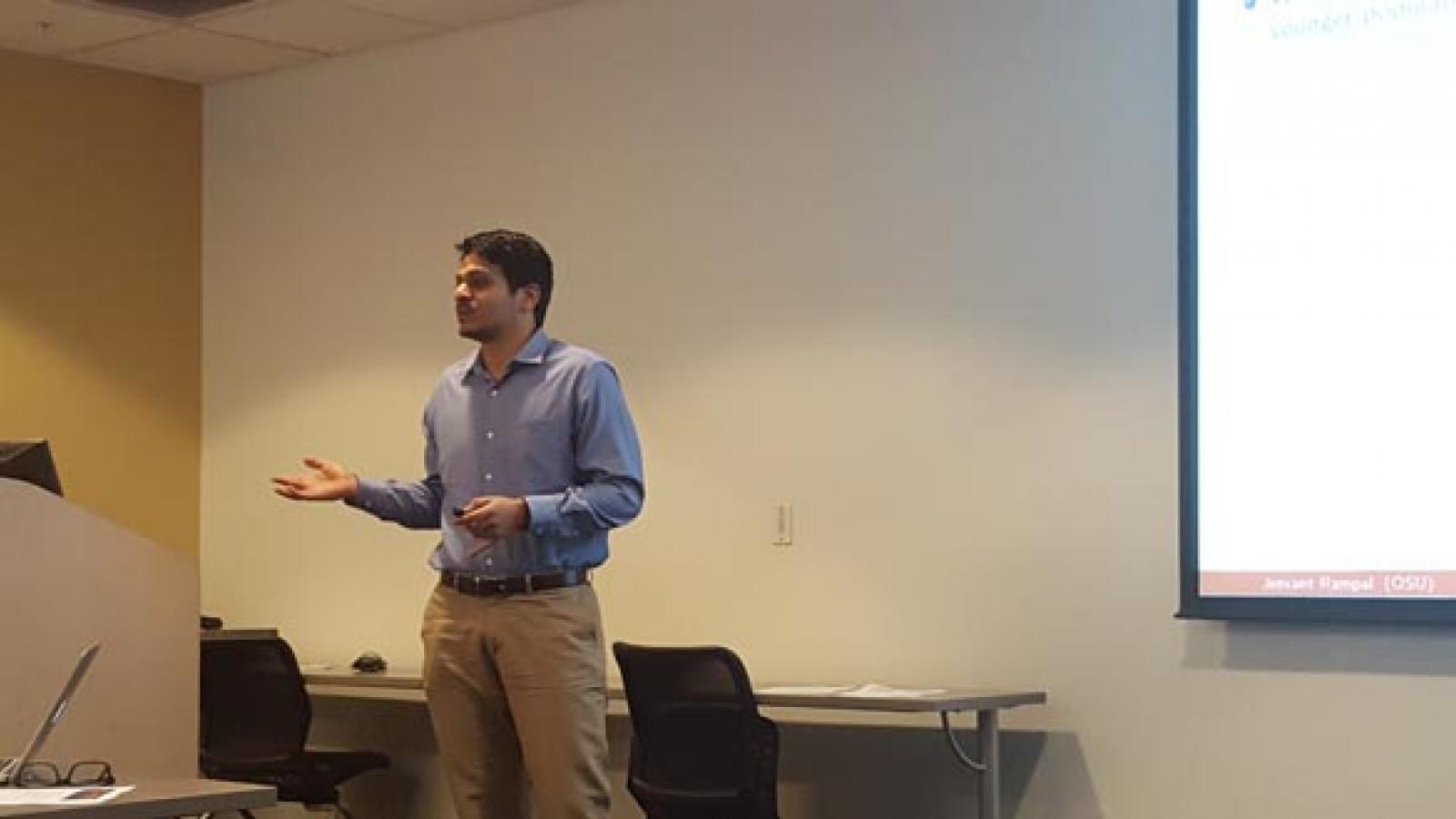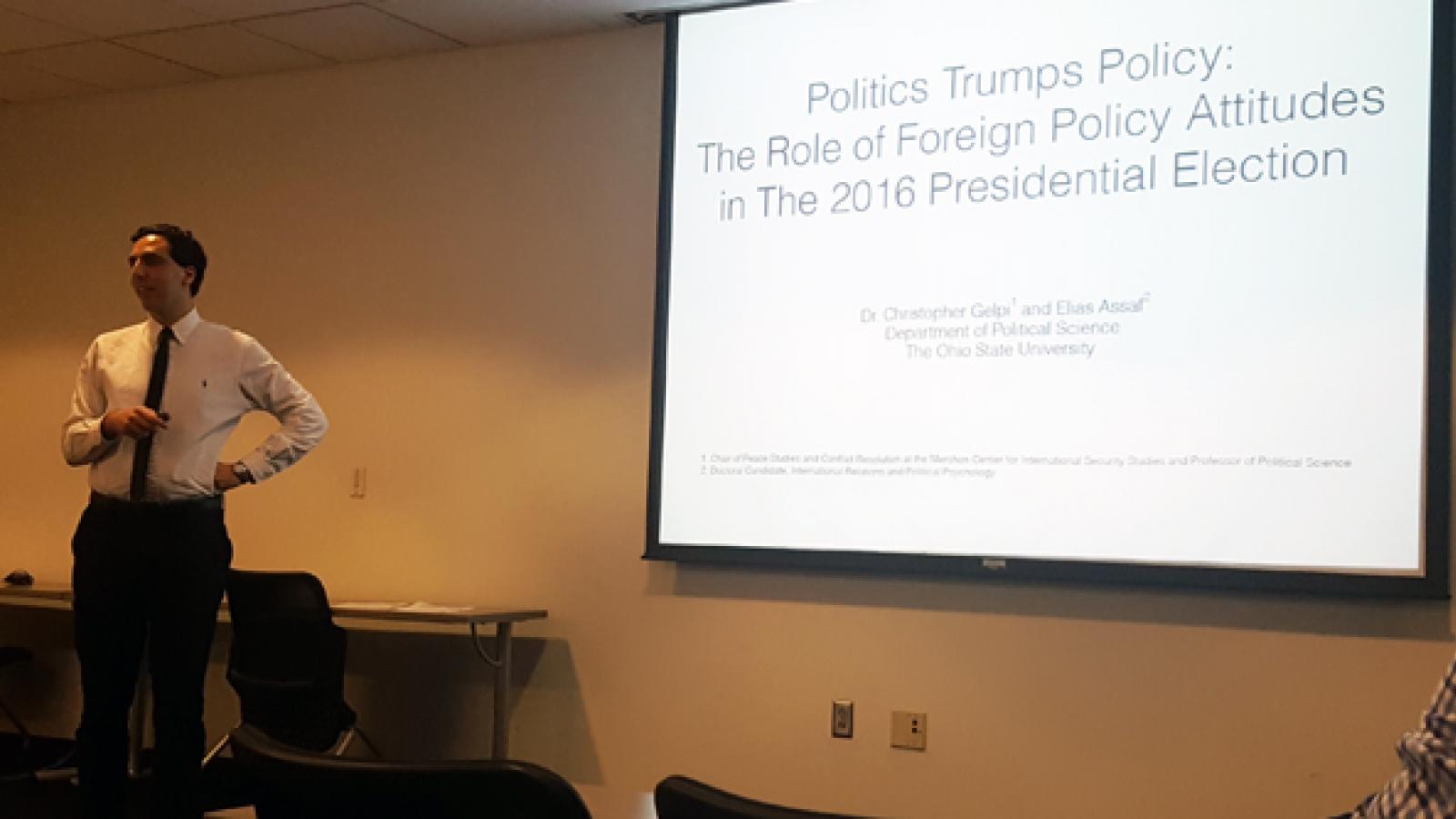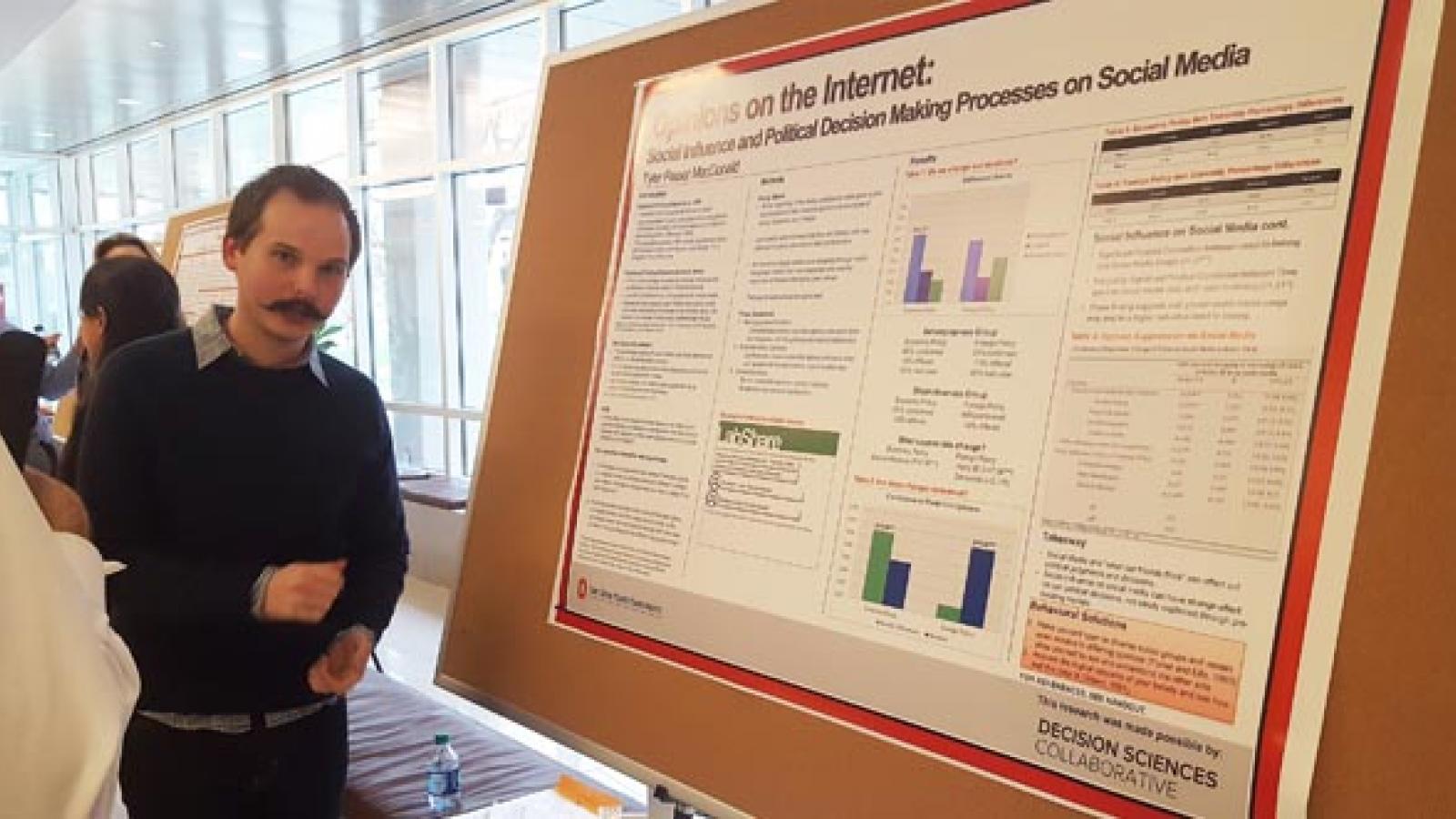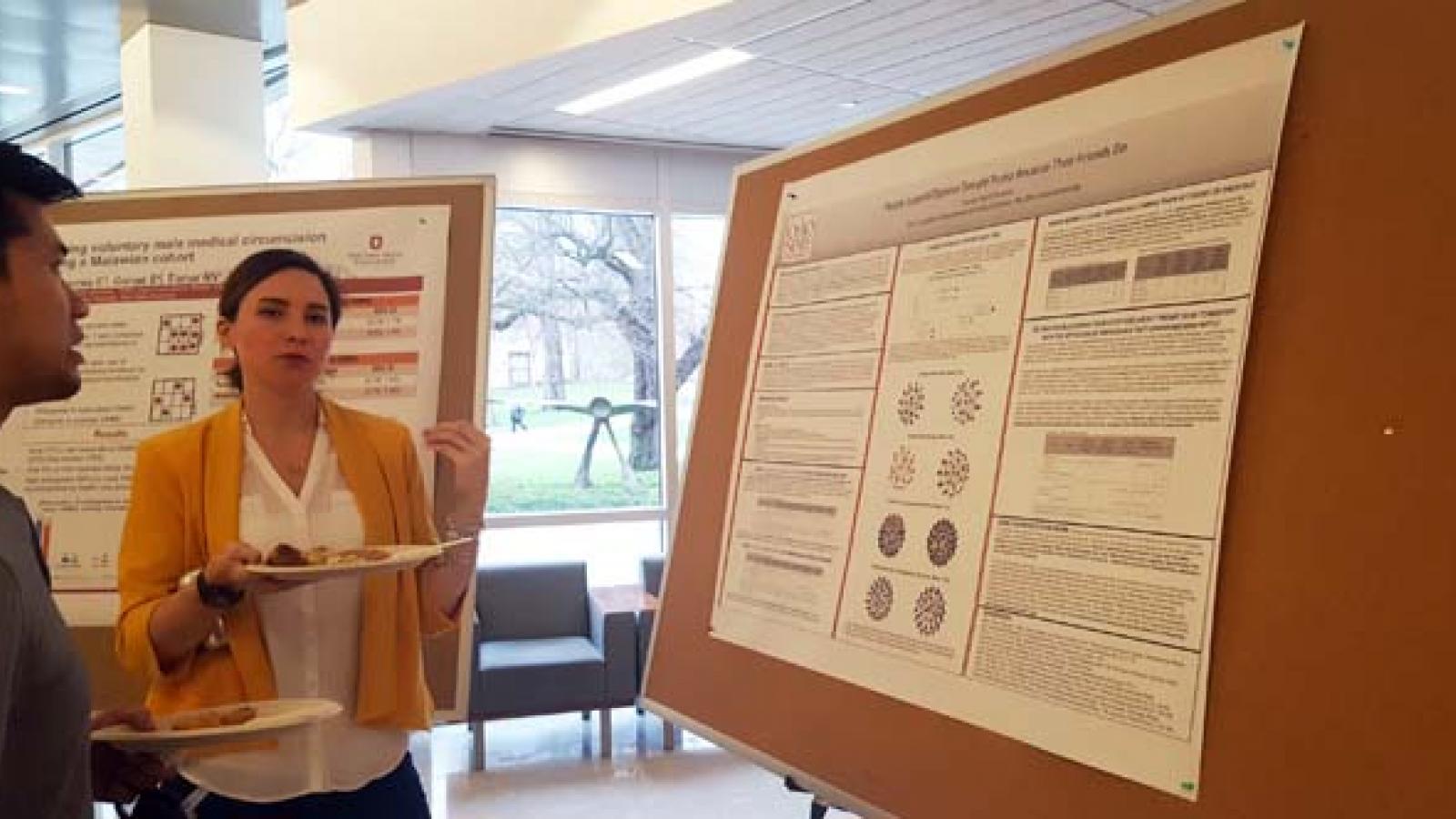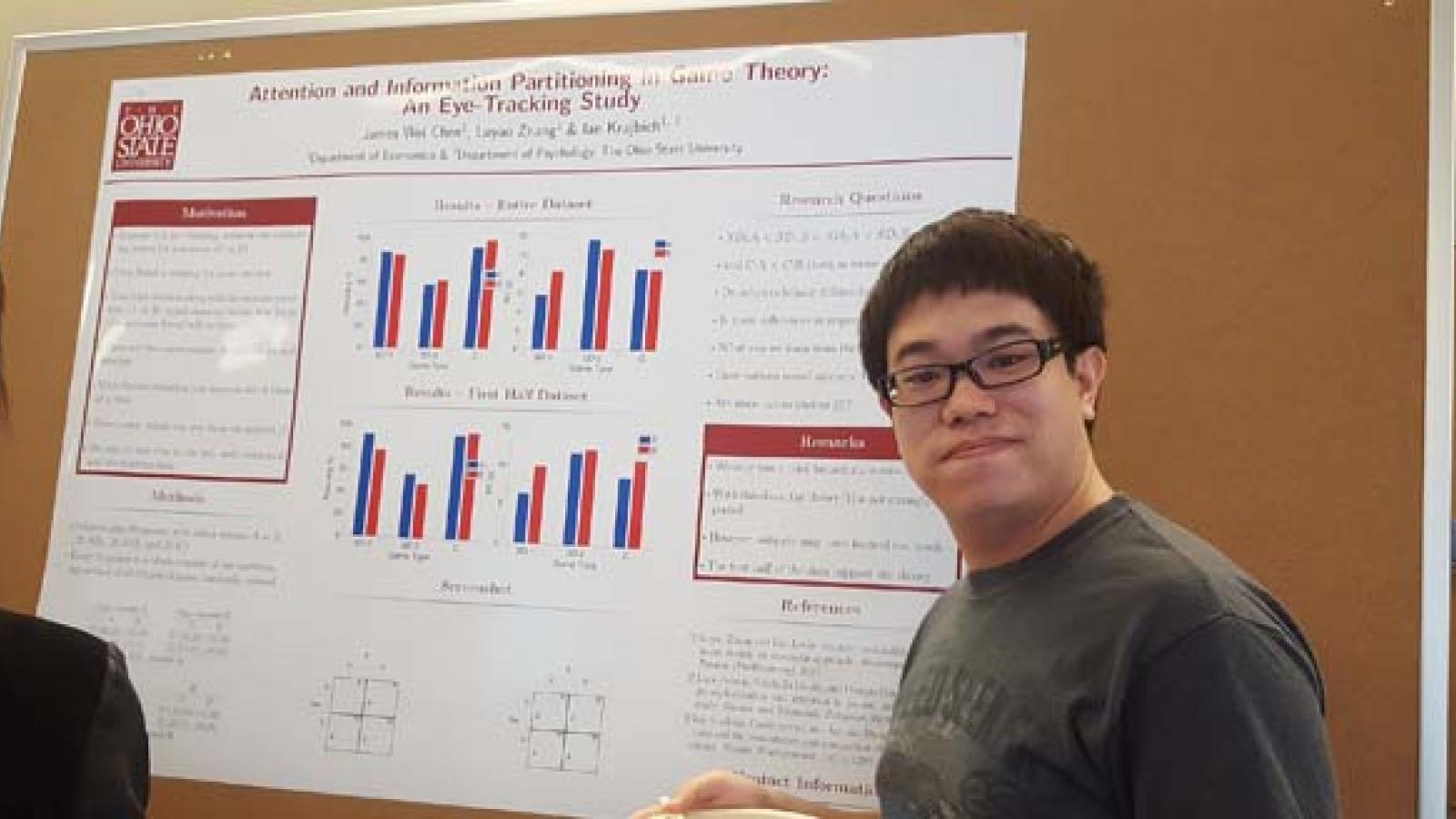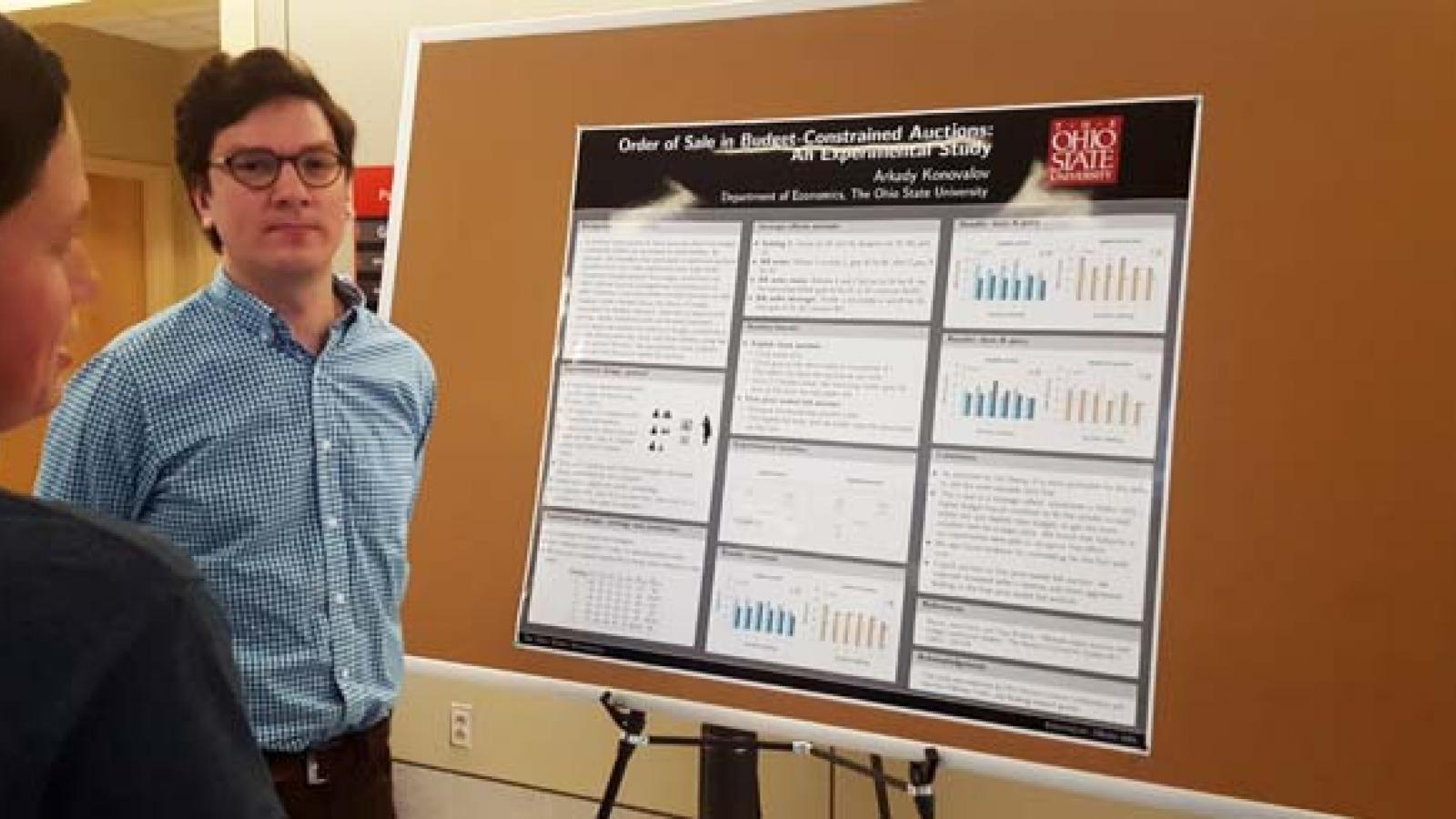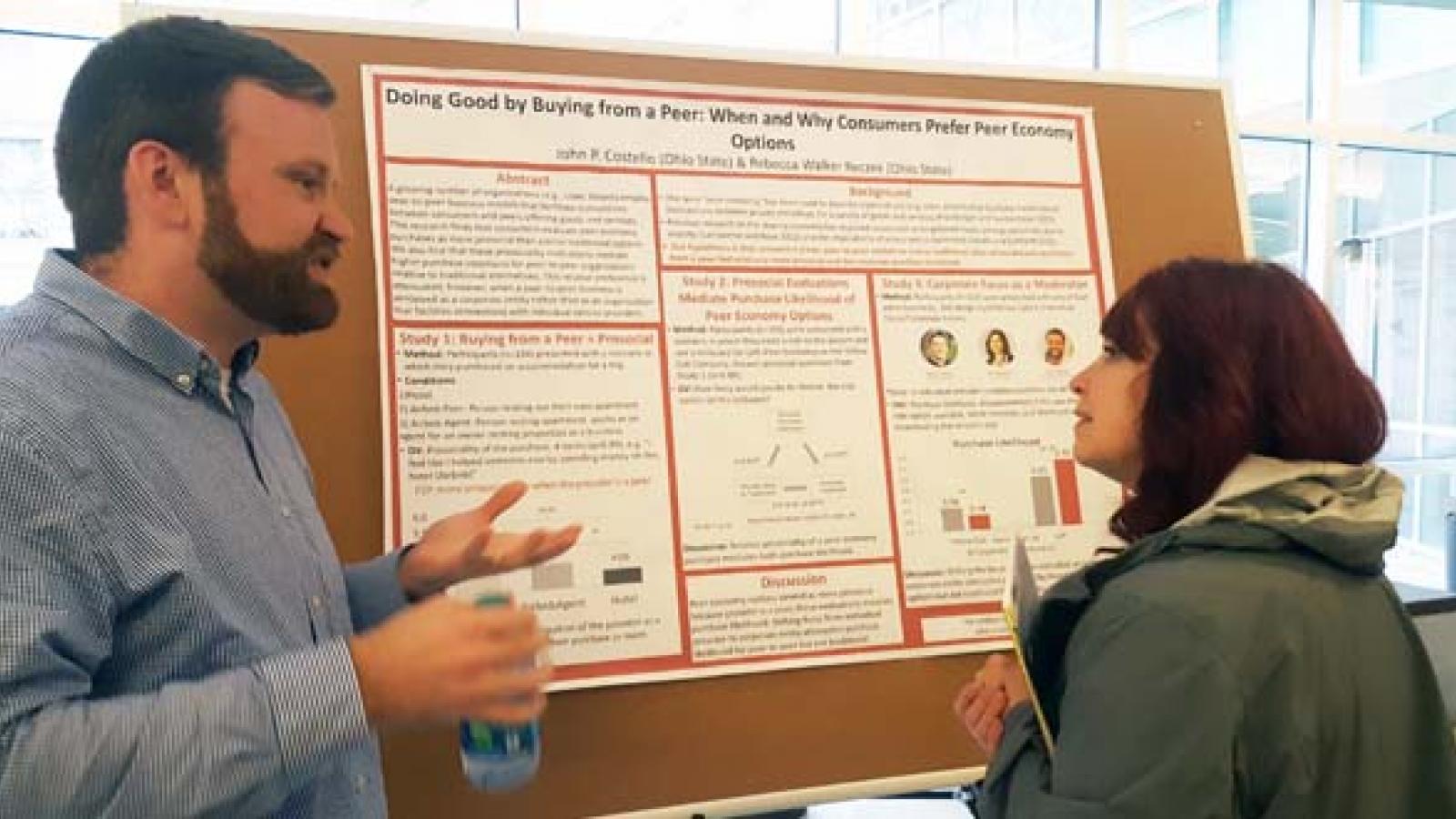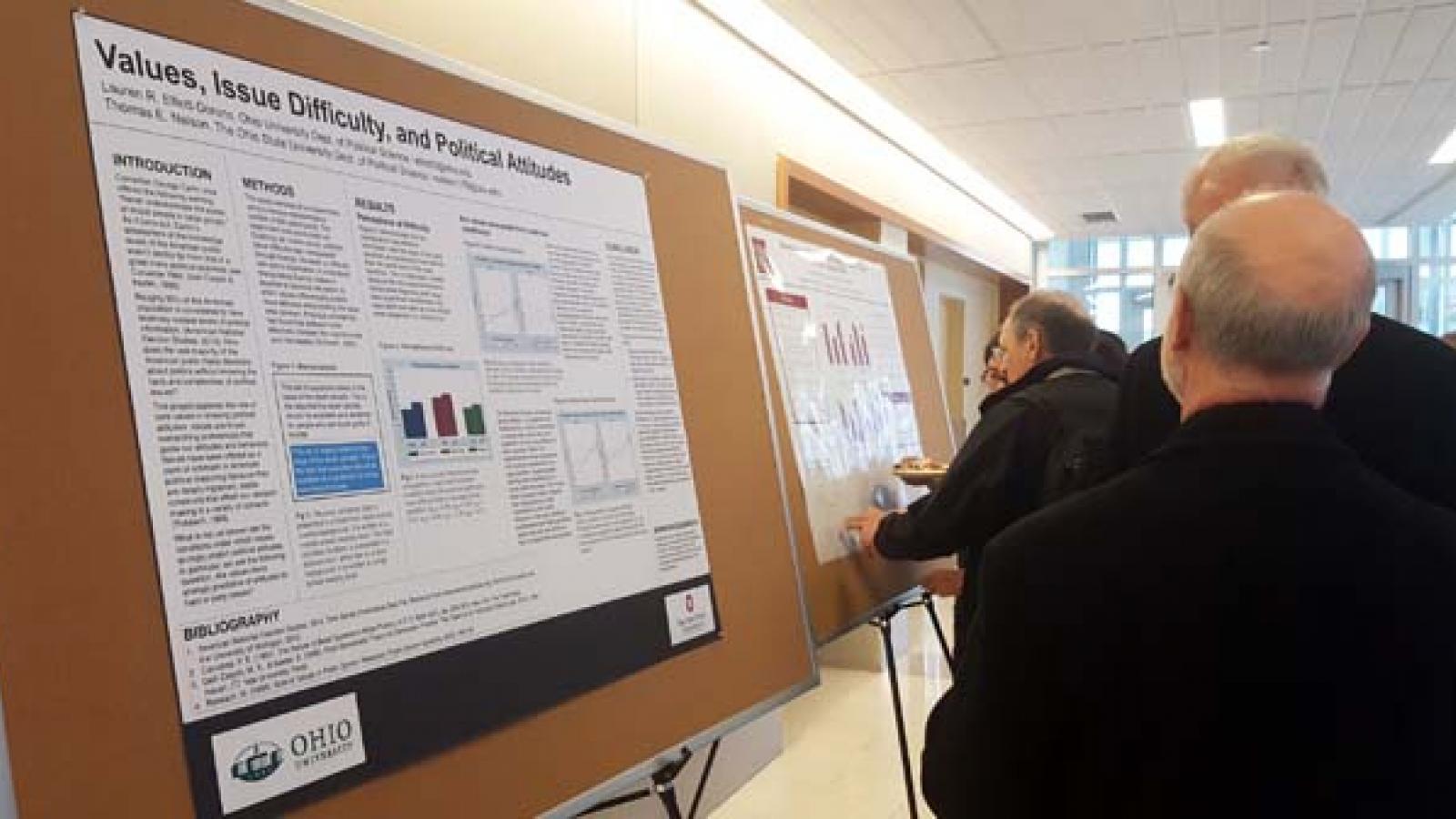Spring 2017
Winners of the 2017 DSC Research Forum Best Abstract
Elias Assaf and Christopher Gelpi
Politics Trumps Policy: The Role of Taboo Political Messages in The 2016 Presidential Election
Why did Donald Trump win The 2016 Presidential Election? We conduct a survey experiment on 1,568 adults the week of the election, investigating support for Donald Trump in the face of several taboo statements that he made regarding nuclear weapons in the press. We find that attributing these statements to a generic Republican candidate results in a steep drop in support. Donald Trump, however, emerges unscathed. We test three competing hypotheses of why this might be the case, and conclude that Donald Trump is shielded both by (Republican) party loyalty and a willingness, across parties, to punish the political establishment.
Jeevant Rampal
Opponent's Foresight and Optimal Choices
This experimental study investigates how and why the behavior of experienced players in a sequential-move game is affected by their belief about their opponent’s expertise. We find that experienced players play almost perfectly against an expert opponent. But both exogenous information and endogenous inference about the opponent's lack of expertise increase the probability with which experienced players abandon perfect play, risk a loss, and try to elicit a mistake from their opponent, to attain a higher payoff. A maximum likelihood analysis shows that a model of limited foresight and uncertainty about the opponent’s foresight (Rampal (2016)) explains the data best.
DSC Research Forum Poster Abstracts
James Wei Chen and Ian Krajbich
Attention and information partitioning in Game Theory: An eye-tracking study
We propose an eye-tracking experiment to test a recent innovation in the game theory. This innovation is able to account for decision-makers’ heterogonous suboptimal behaviors, by allowing different people to have different levels of cognitive abilities (or types). However, by observing decision-maker’s behavior alone, the theory cannot always distinguish between different types of subjects. Our experimental design is potentially to further identify these types using the eye-tracking data, such as saccades and fixations.
John Costello and Rebecca Walker Reczek
Doing Good by Buying from a Peer: Why Consumers Prefer Peer Economy Options
A growing number of organizations (e.g., Uber, Airbnb) employ peer-to-peer business models that facilitate transactions between consumers and peers offering goods and services. This research finds that consumers evaluate peer economy purchases as more prosocial than similar traditional options. We also find that these prosociality evaluations mediate higher purchase intentions for peer-to-peer organizations relative to traditional alternatives. This relative preference is attenuated, however, when a peer-to-peer business is perceived as a corporate entity rather than as an organization that facilities connections with individual service providers and when the perceived need of the individual service provider is low.
Lauren Elliott-Dorans and Thomas Nelson
Values, Issue difficulty, and Political Attitudes: The Role of Core Values in Political Decision-Making
Commitment to deeply-ingrained core political values, such as equality and liberty, have been upheld as a possible source of structured political reasoning, despite the public’s overall lack of political knowledge. In this project, we examine the extent to which values continue to predict attitudes toward issues perceived as particularly difficult. In this experiment, we manipulate the presentation of three political issues, making each issue easy to understand in one condition, and harder to understand in the other. In doing so, we find that values indeed continue to predict attitudes, even when an issue is especially hard to understand.
Kunuwo Fokong, Mary Kate Tompkins, Elly Chemey, Sarah Garver, Abigail Norris Turner, and Alison Norris
Positive attitudes toward undergoing voluntary male medical circumcision among a rural Malawian cohort
Voluntary male medical circumcision (VMMC) is a safe, one-time intervention that provides up to 60% protection against HIV acquisition. Although this protection has led men in some communities to queue up for VMMC, in other places, including Malawi, demand remains low. Men report not undergoing VMMC because of fears about reduced sexual pleasure or performance, infections, bleeding, cosmetic unacceptability, and pain. VMMC can be a transformative intervention in high-HIV prevalence regions, if men decide to be circumcised. Because prior research has found that greater numeracy (ability to understand and use numbers) is associated with beneficial decision-making processes and a greater reported likelihood of condom use to protect against HIV, we conducted a study to evaluate the relationship between numeracy and attitudes about VMMC. We assessed VMMC decision making during a longitudinal community-based cohort study of men and women in rural Malawi. We had two objectives: 1) to describe attitudes toward undergoing VMMC; and 2) to examine the potential role of numeric abilities and decision making processes in individuals’ willingness to learn about, or undergo VMMC.
Olga Kondratjeva and Stephanie Moulton
From Whom to Borrow? A Case Study of Financial Decision Making of Borrowing Households in Nepal
In developing countries, financially constrained households often rely on small loans to manage daily expenses and invest in future opportunities. The purpose of this study is to explore borrowing decisions of low-income individuals in the context of a developing country, Nepal. We consider a broad measure of borrowing, which includes loans from formal, semi-formal and informal financial institutions. Using interview data from two regions in Nepal, we conduct a qualitative study exploring borrowing purposes for which households obtain loans, and how households compare and choose between different borrowing options. The analysis describes different decision making processes guiding borrowing behaviors.
Arkady Konovalov and John Kagel
Multi-Unit Auctions with Financially Constrained Bidders: An Experimental Study
The presence of financial constraints changes traditional auction theory predictions. In a case of multiple objects, such constraints may affect revenue equivalence and efficiency of different auction formats. Following Benoit and Krishna (2001), we consider a simple complete information setting with three financially constrained bidders and two objects that have different values common to all the bidders. Taking the theory to the lab, we study two orders of sale, with the more expensive object being sold first or last. The former is predicted by the theory to be weakly revenue-dominant, which is confirmed by the results of our laboratory experiment.
Tyler MacDonal and Kathleen McGraw
Opinions on the Internet: Social Influence and Decision-Making Processes on Social Media
The party identification model, using the heuristic of party identification to determine an individual’s political decisions, has been the dominant way to explain how people make political judgments and decisions. But this approach fails to recognize that as society begins to interact more digitally through social media, acquisition of information has become a social activity. This study focuses on the impact of social influence on political judgment and decision making. We conducted an experiment in which participants interacted digitally, and demonstrate the biases created through digital interactions and how those biases can suppress our views and effect our decisions.
Ellen Peters, Brittany Shoots-Reinhard, Mary Kate Tompkins, Dan Schley, Louise Meilleur, Aleksander Sinayev, Martin Tusler, Laura Wagner, & Jennifer Crocker
Improving numeracy enhances decision outcomes including financial literacy
Greater numeracy has been correlated with better financial and health outcomes, but causal effects in adults are unknown. In a 9-week longitudinal study, undergraduate students taking a psychology statistics course were randomly assigned to a values-affirmation intended to improve numeracy or to control. By the final week in the course, affirmed students had better objective and subjective numeracy than controls, which in turn predicted better financial literacy and financial and health outcomes at the end of the semester. Enhancing perceived and actual numeracy improved abstract numeric reasoning and important financial and health outcomes.
Lauren Ratliff Santoro
People Support or Oppose Trump Because Their Friends Do
There are many theories in circulation about who supported Donald Trump for president and why. Individuals supported Trump because they value authoritarianism, because they are intolerant, or because of their social class, among others. The rise of these so-called “Trump studies” is prolific across disciplines, and these explanations are both intuitive and find initial support in the data. My research, posits an alternative, yet complementary, explanation to understand who supported Trump: individuals who interacted with others who favored Trump – or, our social networks. Specifically, my research gives insight into who changed their attitudes towards Trump and why using longitudinal data.
Mary Kate Tompkins and Ellen Peters
The Malleability of Subjective Numeracy
Greater subjective numeracy (SNS) corresponds with greater motivation and confidence with numbers. However, little is known about the malleability of individuals’ SNS and its causal effects are unknown. In the present research, we attempted to manipulate individuals’ SNS through the ease or difficulty experienced from working on numeric problems. Participants were randomly assigned to complete hard, easy, or no math problems. Results confirmed our hypotheses that simply working on more difficult math problems lowered individuals’ numeric-ability beliefs and preferences for numbers, leading to decreased persistence on a subsequent numeric task. However, inconsistent with our hypotheses, working on easy math problems did not improve individuals’ subjective numeracy

